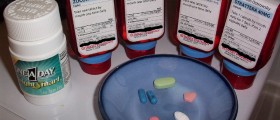
Femara has the same success rates as Clomid, another infertility drug, and much of the success will depend on the age of the woman, health of the fallopian tubes and sperm quality of the male. With the right conditions, a woman has a 15% chance of becoming pregnant each month while using Femara for infertility. Other factors which can increase the odds include if the woman is under 35 years old, has no other fertility problems and ovulation can be stimulated using the drug. Many doctors will not prescribe Femara for fertility problems in women trying to conceive for a variety of different reasons. Concerned physicians cite a 2005 Canadian report which suggests a higher rate of birth defects in pregnancies achieved using Femara. However, the study group was small and it was criticized because of using an improper model.
Femara has a short life in the bloodstream and is prescribed early in the menstrual cycle, which means less of a chance of fetal abnormalities. Femara has not been approved by the FDA to be used as treatment for female infertility issues, nor has the manufacturer applied for using the drug in this manner. However, a physician can still prescribe the drug in an off label manner, which means it is safe and legitimate to use, but should only be taken as prescribed and never used in any way inconsistent with instructions from the doctor.
- www.nih.gov/news-events/news-releases/new-treatment-increases-pregnancy-rate-women-infertility-disorder
- www.nih.gov/news-events/news-releases/standard-treatment-better-potential-alternative-unexplained-infertility
- Photo courtesy of NLM Pillbox by Wikimedia Commons: commons.wikimedia.org/wiki/File:000549lg_Femara.jpg















Your thoughts on this
Loading...